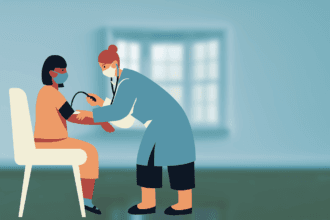Nursing, a profession at the heart of healthcare, is constantly evolving. With new medical breakthroughs, changing health policies, and diverse patient needs, the role of a nurse is more dynamic than ever. This is where continuing education steps in. Not only does it keep nurses abreast of the latest developments, but it also empowers them to deliver exceptional care.
This article delves into why continuing education is not just beneficial but crucial for nurses. Let’s take a look. The American Nurses Association has a great article that explores continuing education opportunities for nurses.
1. Staying Current with Medical Innovations
The medical field is renowned for its rapid advancements. New treatments, technologies, and methodologies emerge regularly, making it essential for nurses to stay current. Continuing education provides nurses with the latest information and training in medical innovations. This knowledge is not just theoretical; it has practical implications. Nurses trained in the latest cardiac care techniques, for instance, can significantly improve patient outcomes.
Furthermore, understanding new technologies, such as telemedicine platforms, enhances the nurse’s ability to adapt to modern healthcare settings. In essence, ongoing education ensures that nurses are not left behind in a fast-evolving healthcare landscape. Medtronic talks about some of the biggest changes in healthcare technology this year.
2. Advancing Career Opportunities through Specialized Programs
For nurses aspiring to climb the career ladder, continuing education is a critical stepping stone. Specialized nursing programs offer pathways to higher-level positions and specialized fields. These programs are meticulously crafted to provide comprehensive knowledge and skills that extend well beyond basic nursing training.
Take, for instance, the skills gained through FNP to DNP online programs. A nurse undertaking this journey acquires vital leadership skills, advanced clinical expertise, and the highest level of proficiency in family practice. This education does more than just expand their scope of practice; it positions them to significantly influence healthcare delivery and policy.
By gaining deeper insights into complex healthcare issues and learning how to manage them effectively, nurses can play a pivotal role in shaping the future of healthcare.
3. Enhancing Patient Care and Safety
At its core, nursing is about providing the best possible care to patients. Continuing education plays a pivotal role in this. With constant learning, nurses can apply the latest evidence-based practices to their care routines, thereby enhancing patient safety and outcomes.
For instance, a nurse who has recently completed a course in pain management can offer more effective and compassionate care to patients suffering from chronic pain. This not only improves the patient’s comfort but can also expedite their recovery.
Additionally, education in areas like infection control and patient safety protocols directly contributes to reducing hospital-acquired infections and medical errors, which are critical metrics in healthcare quality.
4. Fulfilling Licensing and Certification Requirements
In many regions, maintaining an active nursing license requires evidence of continuing education. This requirement underscores the importance of ongoing learning in maintaining professional standards. Nurses often need to complete a certain number of continuing education units (CEUs) to renew their licenses. These courses ensure that nurses not only meet the minimum legal requirements but are also up-to-date with the latest in nursing practice and ethics.
Moreover, for those pursuing specialty certifications, regular continuing education is often a prerequisite. By meeting these requirements, nurses demonstrate their commitment to professional growth and adherence to the highest standards of healthcare.
5. Increasing Competence in Specialized Areas
Nursing specialization is a trend on the rise, offering nurses the opportunity to focus on areas they are most passionate about, such as pediatrics, oncology, or geriatric care. Continuing education is key in this journey of specialization. Through specialized programs and certifications, nurses can gain a deeper understanding and competence in specific healthcare areas.
This specialization not only makes them invaluable resources in their chosen fields but also enhances the quality of care they provide. For instance, a nurse specializing in neonatal care through advanced courses will be better equipped to handle the unique challenges of neonatal nursing. This competence translates into better patient outcomes and increased trust from patients and their families.
6. Boosting Confidence and Job Satisfaction
Continued learning and professional development play a significant role in boosting a nurse’s confidence and job satisfaction. With each new skill and knowledge gained, nurses feel more competent and confident in their roles. This self-assurance often leads to higher job satisfaction as they can handle complex situations more effectively and contribute more significantly to patient care.
Furthermore, the achievement of completing advanced courses and earning additional certifications provides a sense of personal accomplishment and pride. This boost in morale is crucial in a demanding and often stressful profession like nursing.
7. Keeping Pace with Healthcare Policy and Ethical Standards
The healthcare landscape is not only shaped by medical advances but also by changing policies and ethical standards. Continuing education helps nurses stay informed and compliant with these changes. Courses on healthcare law, ethics, and policy keep nurses aware of their legal responsibilities and ethical obligations. This knowledge is vital in today’s healthcare environment, where nurses must navigate complex patient rights issues, privacy laws, and ever-changing healthcare regulations.
By staying informed, nurses can make ethical decisions, advocate effectively for their patients, and contribute positively to the healthcare system.
8. Networking and Professional Collaboration
Continuing education also offers nurses the opportunity to network with peers, educators, and leaders in the field. These connections can lead to collaborative opportunities, mentorship, and career advancement. For example, attending conferences, workshops, and seminars allows nurses to meet others with similar interests and challenges, fostering a sense of community and collaboration.
These professional networks can provide support, share knowledge, and open doors to new career opportunities that might not be available otherwise. Networking in such educational settings can also lead to collaborative research projects or policy development roles, further enhancing a nurse’s career trajectory.
Conclusion
The importance of continuing education in nursing cannot be overstated. From staying abreast of medical innovations to advancing career opportunities, enhancing patient care, and fulfilling licensing requirements, the benefits are manifold. Continuing education fosters specialization, boosts confidence and job satisfaction, keeps nurses informed about healthcare policies and ethical standards, and provides invaluable networking opportunities.
For those in the nursing profession, embracing continuous learning is the key to both personal and professional fulfillment. Nurses, by continually enhancing their skills and knowledge, not only uplift their own careers but also significantly contribute to the improvement of the entire healthcare system.










